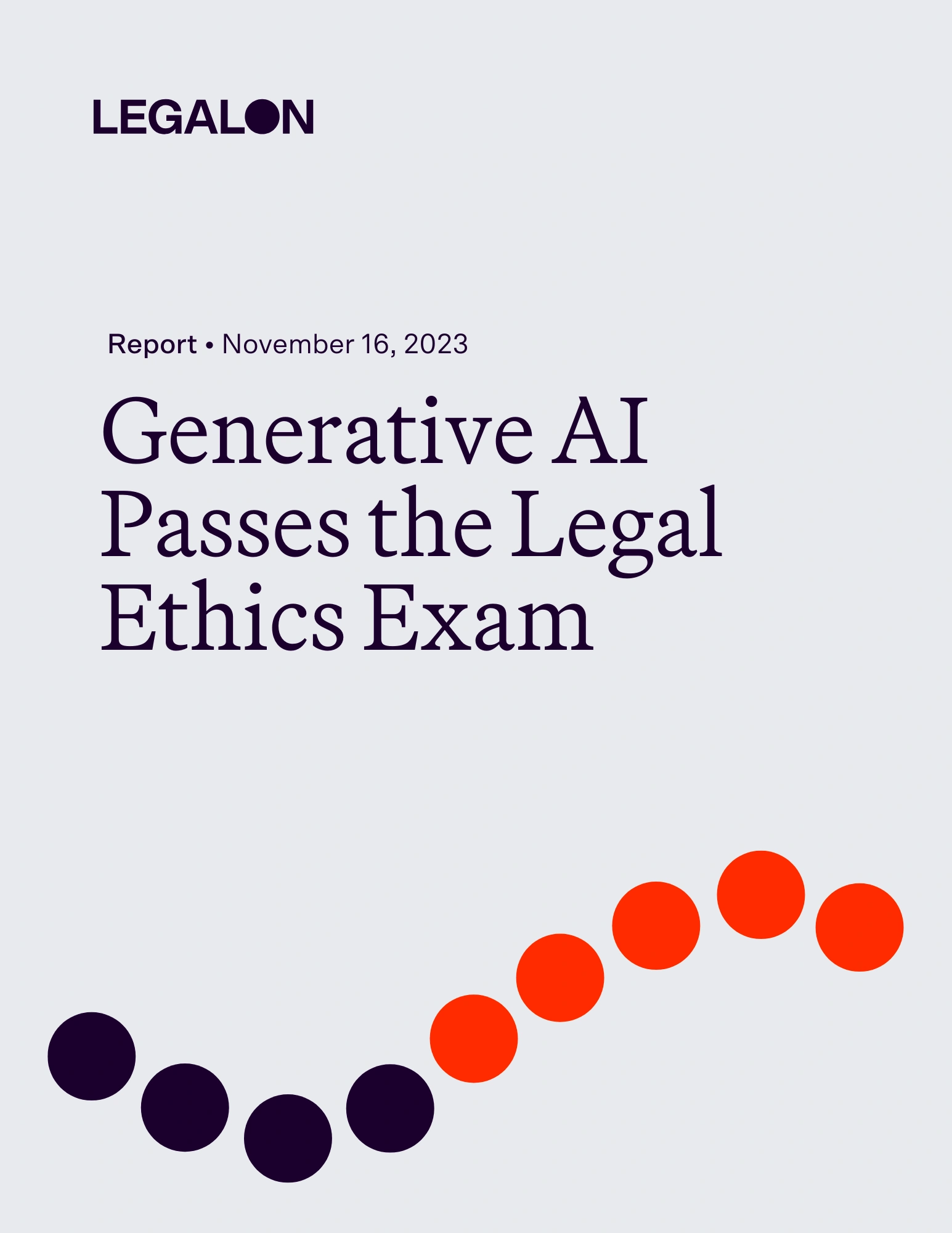.svg)
Product
Solutions

Featured:
Read how a Cincinatti hospital system slashed contract review time by 75% with LegalOn.
Resources
Company
Our latest research takes on a pressing question: can generative AI models handle the complex ethical dilemmas faced by legal professionals? Earlier this year, GPT-4 passed the notoriously difficult bar exam, demonstrating AI's potential to interpret nuanced legal language. But what about the ethical side of legal practice? To find out, we conducted an experiment testing leading AI models against the Multistate Professional Responsibility Exam (MPRE) – the ethics exam required in nearly every U.S. jurisdiction.
This research brief dives into:
Key Insights:
Generative AI is transforming the legal landscape, but it’s clear that ethical responsibility remains a human domain. Download the research to explore how AI and legal professionals can collaborate for a more efficient and just future.


